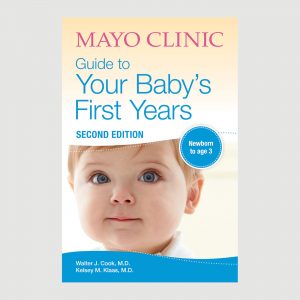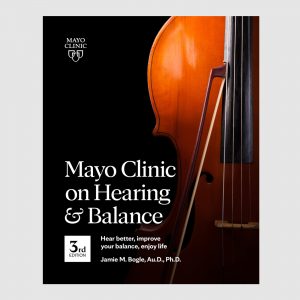
Who doesn’t like French fries and ice cream? It turns out that many people in regions and communities around the world don’t eat these classic American foods, and may be better for it. By studying dietary patterns around the world. Partha Nandi, M.D., F.A.C.P. found that much could be learned by studying the diets of cultures around the world that generally have better health and longevity. While researching his book, Heal Your Gut, Save Your Brain, he noticed, for example, how lower rates of Alzheimer’s disease seemed to be regional, such as in Northern India. This and other examples of discovery can be found in the following excerpt which focuses on the relationship between gut health and Alzheimer’s disease.
Changing the course of Alzheimer’s disease
Gut care is a novel approach to Alzheimer’s care, but it is a method that could drastically alter our treatment and prevention of the disease. Many who suffer from this devastating illness seldom receive hope for a brighter future. By targeting gut health, these patients and their families may have another means to address Alzheimer’s with simple, effective principles that can impact this neurodegenerative disease and their whole health as well.
The Alzheimer’s Gut
Evidence that the gut microbiome and Alzheimer’s are connected is mounting. Researchers in Ireland, England, and Italy have recently reported that “Alzheimer’s symptoms can be transferred to a healthy young organism via the gut microbiota, confirming a causal role of gut microbiota in Alzheimer’s disease.” This data is quite valuable, because it confirms what we have suspected for a long time—the bidirectional communication between the gut and the brain when it comes to Alzheimer’s disease.
Leading up to this report, in a 2022 study, researchers from King’s College in London analyzed the blood and stool samples of sixty-eight people with Alzheimer’s disease (AD) and sixty-eight people who showed no signs of dementia. The “Alzheimer’s gut” was distinct, with an increase in the number of inflammation markers. This follows up on findings that the gut microbiomes of people with preclinical AD (indicated by altered brain amyloid and tau proteins) had a different composition from those of healthy individuals.
Other recent research has shown that rats implanted with stools from people with Alzheimer’s did not grow as many nerve cells as rats in the control group. And early trials are beginning to suggest that treating brain stem cells with blood from Alzheimer’s patients can disrupt nerve cell growth, leading researchers to conclude that inflammation in the bloodstream associated with gut metabolites can affect the brain.
All of this is to say that when it comes to Alzheimer’s disease, the research on the gut-brain axis is evolving rapidly, but in my opinion there is one thing about which there is no doubt: there is a definite connection.
From India to Italy: Reversing inflammation with nutrition
Until recently, when the Western diet became more prevalent, India was cited as having one of the lowest rates of Alzheimer’s in the world. In northern India, fewer than 1 percent of those over the age of fifty-five had Alzheimer’s—far below the worldwide and US averages. Though India does not excel in high blood pressure control or diabetes control, most Indians regularly cook with turmeric, a well-known anti-inflammatory agent.
As discussed earlier, turmeric is a potent anti-inflammatory agent. A great tool for achieving gut health, it has been used for centuries in Asia and is now popular worldwide. The active ingredient in turmeric is gut-friendly curcumin, which has been shown to improve intestinal barrier function and combat intestinal permeability (leaky gut). Turmeric also works with the gut microbiome to decrease inflammation, which is what makes it well suited to help in the fight against diseases such as Alzheimer’s.
Turmeric does not significantly change the taste of the food and is caffeine free, low in calories, and rich in nutrients. It can be mixed into your favorite drinks, including tea, cocoa, and smoothies. I add it to scrambled eggs, lentils, and veggies. Turmeric is absorbed well when taken with food, especially foods containing fat and with a dash of black pepper.
Although turmeric is a fantastic addition, changing one thing about a diet is not enough, so it is important to consider a lifelong way of eating that can help reduce inflammation and decrease brain atrophy.
The Mediterranean Diet
When it comes to Alzheimer’s disease and helping the microbiome thrive, I tend to recommend the Mediterranean diet to my patients because it has been shown to be effective in decreasing inflammation, which is so important in general and especially when it comes to neurodegenerative disease.
This accessible diet, which is easy for patients to adopt, is based on traditional foods consumed by European cultures around the Mediterranean—particularly in Greece and Italy— and is marked by being low in saturated fat and higher in vegetable oils. Although exact definitions vary, they all include guidelines for consumption of extra-virgin (cold-pressed) olive oil, vegetables including leafy greens, fruits, whole grains, nuts, and beans/legumes. There is moderate to low consumption of fish and other meat, cheese, yogurt, and red wine, and low intakes of eggs and sweets. To this I add herbs and spices and recommend that red meat be eaten only rarely if at all. I emphasize that patients (whether they have Alzheimer’s or not) should avoid eating processed meat or any highly processed food, refined grains and oils, foods with added sugars, and beverages sweetened with sugar.
As they make the transition to my interpretation of the Mediterranean diet, I encourage patients to begin by making it a point to eat:
- Beans
- Fiber-rich foods or a supplement like psyllium husks
- Fruits
- Legumes
- Nuts and seeds
- Oily fish, in moderation
- Olives and olive oil
- Probiotic and prebiotic foods like yogurt and bananas
- Some spices, such as ginger and turmeric
- Vegetables, especially leafy greens
Simultaneously, I encourage them to avoid:
- Alcohol
- Foods with excessive amounts of sugar or salt
- Hydrogenated palm or coconut oils
- Pre-made desserts
- Processed foods
Along with this, depending on the patient’s palate, I recommend they add in other anti-inflammatory foods, especially:
- Avocados
- Organic berries, cherries, and grapes
- Broccoli
- Fermented foods
- Green tea
- Mushrooms
- And, of course, turmeric
Supplements
Transforming our diet seldom happens overnight, so as patients are making the transition into an anti-inflammatory diet, over- the-counter supplements can be helpful in altering the micro- biome in the gut, especially:
Probiotics. Just as with stroke and Parkinson’s disease, pre- and probiotics are essential to enhancing and maintaining the microbiome. Diets rich in pre- and probiotics (found naturally in fermented foods such as pickles and sauerkraut, leading to decreased intestinal permeability and inflammation) can bring immediate and dramatic improvements in gut discomfort and prevent further damage to the brain. How does this connect to Alzheimer’s in particular? Due to the increased health of the gut, there is decreased inflammation and thus decreased factors that can cause inflammation throughout the body, including Alzheimer’s. If eating fermented foods is not an option, I recommend both pre- and probiotic supplements.
Butyrate. Studies are finding that the effects of the compound sodium butyrate can improve the pathological status of Alzheimer’s disease. Butyrate does this by regulating gene expression in the brain, where it has several beneficial effects on neurodegenerative disorders. Butyrate can be produced in the gut by eating copious amounts of dietary fiber. It is also present in butter and Parmesan cheese. However, the healthiest and most efficient way to introduce sodium butyrate to the gut is by regularly eating beans and legumes. If eating a bean-rich high-fiber diet proves to be difficult, butyrate supplements are readily available.
GABA. Gamma-aminobutyric acid is a neurotransmitter in our brain that slows down or blocks specific signals in the central nervous system and is known to produce a calming effect. It can be found in some fermented foods, including miso and tempeh, as well as black and green tea, brown rice, soybeans, mushrooms, sweet potatoes, sprouted grains, and cruciferous vegetables. It hasn’t been conclusively determined how effective GABA supplements are at permeating the blood-brain barrier, so as always, food is the first choice, but since early trials on mice have shown some promise and GABA may help to relieve the anxiety and confusion related to Alzheimer’s as well, it is a supplement I consider giving under the appropriate circumstances.
Vitamin D. Vitamin D is key to all-around health, especially gut health. Note that poor gut health can be an indicator of inflammatory bowel disease among others.
We get vitamin D from fattier foods, oily fish, and egg yolks as well as fortified beverages and sun exposure, so it’s a supplement I frequently recommend, especially because the variables of food and time outdoors in sunny weather can be hard to control. When it comes to Alzheimer’s disease prevention and treatment, vitamin D is crucial. Not only is it widely accepted that vitamin D decreases inflammation, but a deficiency has already been linked to the onset and progression of many neurological diseases, including Alzheimer’s.
An excerpt from Heal Your Gut, Save Your Brain by Partha Nandi, M.D., F.A.C.P.

Relevant reading
Mayo Clinic on Prostate Health, 3rd Edition
Mayo Clinic on Prostate Health, 3rd Edition is an easy-to-read yet comprehensive guide to preventing, understanding, treating and living with prostate disease. Advances in research, an explosion in sophisticated imaging technology and new medical procedures have allowed for earlier diagnosis of prostate disease and more personalized treatment.





















